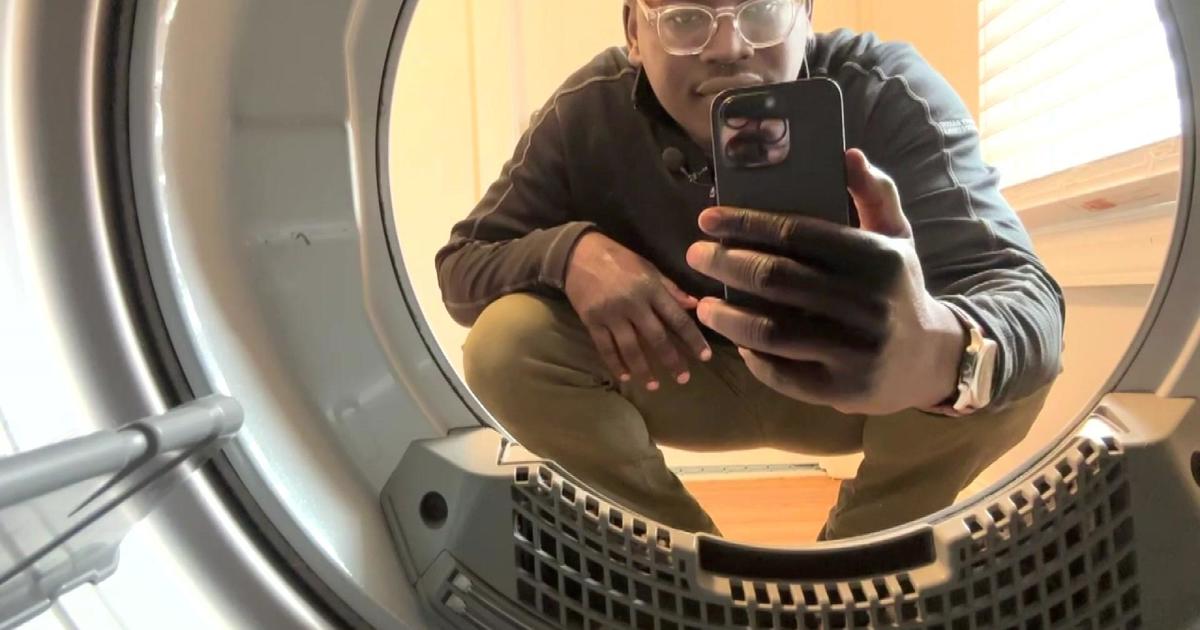Anti-Aging Medicine: Amelia's Look Into A Medical Controversy
MINNEAPOLIS (WCCO) -- Would you like a little extra energy? Most people would.
That's why coffee shops and supplements are all so popular. But when I started having insomnia and feeling run down and irritable, I knew I needed more than a cup of coffee.
At first, I thought it was early menopause, or worse. It turns out, many women in their 30s and 40s have similar symptoms of weariness and irritability.
The solution I found not only has me feeling more energetic and stronger; it also opened my eyes to a growing controversy in women's medicine.
At first, I turned to Bonnie Erickson, a friend, who suggested I see an anti-aging doctor who had worked wonders for her.
"Immediately I felt as though things were different," she said. "I felt like I had my quality of life back."
She's been seeing Dr. Khalid Mahmud for eight years. And after disappointing results with traditional medicine, she swears by his combination of holistic treatments and natural hormones.
"I just think it's a more natural approach," Bonnie said. "It's more of a preventative approach."
Over the years, she's convinced most of her family, including her husband and two of her daughters, to see Mahmud.
One of her daughters, Keri Fuqua, had symptoms similar to mine. She also said her treatment with Mahmud was successful – so successful that I couldn't help thinking that I needed to see him myself.
Mahmud is a former chief of medicine and head of the cancer program at North Memorial Medical Center. His walls are covered with board certifications.
But after a career spent fighting diseases, he has spent the last 10 years trying to prevent them. Mahmud says anti-aging is about feeling younger, regaining lost energy and keeping the body in tune.
He takes a holistic approach, testing everything from your thyroid to diabetes and cholesterol. But with women, he says, the problem is often in their hormones.
"Nature wants to give us youth and has us perfectly balanced during youth, because nature wants us to reproduce," he said. "But once we have reproduced and have gone to 40s or so, then nature loses interest in us."
He uses natural versions of progesterone and estrogen - derived from plants and vegetables, like yams -- called bioidenticals. He says they're different than the pharmaceutical varieties used in hormone replacement therapy.
However, hormone therapy has been under scrutiny since a major 2002 study revealed that synthetic hormones, Premarin plus Provera, were associated with increased rate of heart attack, stroke, blood clots and breast cancer.
Mahmud says the natural hormones are different and safe, and he tests blood frequently to maintain the right balance.
My own blood tests showed that I'm not even pre-menopausal, but I was too low on progesterone and vitamin D. Mahmud said my lack of progesterone, which calms you, could explain why I wasn't able to sleep.
He prescribed me bioidentical pills to crush and dissolve under my tongue -- that way, they avoid going through the digestive system. He also prescribes, for other patients, bioidenticals in creams and ointments.
It's an approach that differs from mainstream medicine, but not as much as you might think.
At the University of Minnesota, Dr. Carolyn Torkelson also prescribes bioidenticals, but in much lower levels.
"What we're really trying to do is control symptoms," Torkelson said. "And in order to control your symptoms, we don't need a high level of estrogen or progesterone.
She uses just enough to get past the bumps in the road of menopause. Not to get back to the levels lost from youth.
"I'll give them to you for symptomatic control, but following the blood work would probably put you on higher dose than I'd be comfortable giving you," she said.
That's where the doctors differ, because Torkelson feels a hormone is a hormone, regardless of where or how it's produced. And she treats the bioidenticals with kid gloves, because of the 2002 studies.
"We have no studies to suggest they're any different than taking the Premerin or the Provera [ a synthetic variant of progesterone] in regards to side effects," Torkelson said.
Mahmud says he's been working on his own study, and hopes to have it published soon. He says he's treated almost 1,000 patients with biodenticals -- without side effects.
"If you had put them on your hormone therapy...we would have had 30 cases of cardiovascular events and we had zero," he said.
It's a contentious issue in the medical community. Doctors are worried about long-term concerns while women want relief from often puzzling problems.
It's the reason my friends and others went to Mahmud in the first place.
"Could it be just as easy as managing your hormones?" Erickson asked. "I don't know. I guess I'm trying this route, because I tried the other."
The anti-aging medicine is not often covered by insurance. But only a week after taking the bioidenticals for the first time, I'm sleeping much better and feeling as though I have more energy.
Like my friends said, it really is night and day. And there are also men who go through this, too. But the big questions is: Am I any easier to be around the house with?
But that's a question for Frank and my kids to answer.
For more information about the doctors listed in this story:
Dr. Carolyn Torkelson, U of M Medical Center
612-273-7111 | U Of M Providers
Dr. Khalid Mahmud, Innovative Directions In Health
(952) 922-2345 | Innovative Directions in Health



